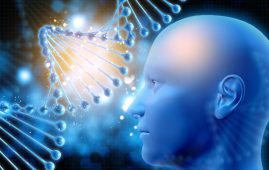

The research was recently presented at the Empirical Methods in Natural Language Processing (EMNLP) conference. The results have been published in the Proceedings of the Empirical Methods in Natural Language Processing Conference, 2023.
Large language models (LLMs) such as ChatGPT are becoming more and more popular, and this could be dangerous for the increasing number of individuals who rely on online resources for critical health information.
Researchers from The University of Queensland (UQ) and CSIRO, Australia’s national science agency, investigated a fictitious situation in which a layperson (a non-professional health consumer) uses ChatGPT to inquire about the efficacy of “X” treatment for ailment “Y.”
From “Can zinc help treat the common cold?” to “Will drinking vinegar dissolve a stuck fish bone?” were among the 100 questions posed.
The response from ChatGPT was contrasted with the accepted response, or “ground truth,” which is based on current medical understanding.
Dr. Bevan Koopman, an associate professor at UQ and Principal Research Scientist at CSIRO, said that despite the extensively reported risks associated with searching for health information online, people still do so, and are increasingly doing so through ChatGPT and other similar platforms.
“The widespread popularity of using LLMs online for answers on people’s health is why we need continued research to inform the public about risks and to help them optimize the accuracy of their answers,” Dr. Koopman said. “While LLMs have the potential to greatly improve the way people access information, we need more research to understand where they are effective and where they are not.”
Two question formats were examined in the study. The first was only a query. The second question was slanted in favor of or against the evidence.
Nevertheless, accuracy dropped to 63% when the language model was presented with an evidence-biased cue. The accuracy dropped to 28% once more when an “unsure” response was permitted. This result defies the widely held notion that providing evidence when prompting enhances accuracy.
“We’re not sure why this happens. But given this occurs whether the evidence given is correct or not, perhaps the evidence adds too much noise, thus lowering accuracy,” Dr. Koopman said.
Major search engines are increasingly merging LLMs and search technologies in Retrieval Augmented Generation, according to study co-author and Queensland University of Technology Professor Guido Zuccon, Director of AI at the Queensland Digital Health Centre (QDHeC).
“We demonstrate that the interaction between the LLM and the search component is still poorly understood and controllable, resulting in the generation of inaccurate health information,” said Professor Zuccon.
The research’s next steps involve examining how the general population makes use of the health information produced by LLMs.
For more information: Dr. ChatGPT tell me what I want to hear: How different prompts impact health answer correctness, Proceedings of the 2023 Conference on Empirical Methods in Natural Language Processing (2023), DOI: 10.18653/v1/2023.emnlp-main.928
more recommended stories
 Caffeine and SIDS: A New Prevention Theory
Caffeine and SIDS: A New Prevention TheoryFor the first time in decades,.
 Microbial Metabolites Reveal Health Insights
Microbial Metabolites Reveal Health InsightsThe human body is not just.
 Reelin and Cocaine Addiction: A Breakthrough Study
Reelin and Cocaine Addiction: A Breakthrough StudyA groundbreaking study from the University.
 Preeclampsia and Stroke Risk: Long-Term Effects
Preeclampsia and Stroke Risk: Long-Term EffectsPreeclampsia (PE) – a hypertensive disorder.
 Statins and Depression: No Added Benefit
Statins and Depression: No Added BenefitWhat Are Statins Used For? Statins.
 Azithromycin Resistance Rises After Mass Treatment
Azithromycin Resistance Rises After Mass TreatmentMass drug administration (MDA) of azithromycin.
 Generative AI in Health Campaigns: A Game-Changer
Generative AI in Health Campaigns: A Game-ChangerMass media campaigns have long been.
 Molecular Stress in Aging Neurons Explained
Molecular Stress in Aging Neurons ExplainedAs the population ages, scientists are.
 Higher BMI and Hypothyroidism Risk Study
Higher BMI and Hypothyroidism Risk StudyA major longitudinal study from Canada.
 Therapeutic Plasma Exchange Reduces Biological Age
Therapeutic Plasma Exchange Reduces Biological AgeTherapeutic plasma exchange (TPE), especially when.

Leave a Comment